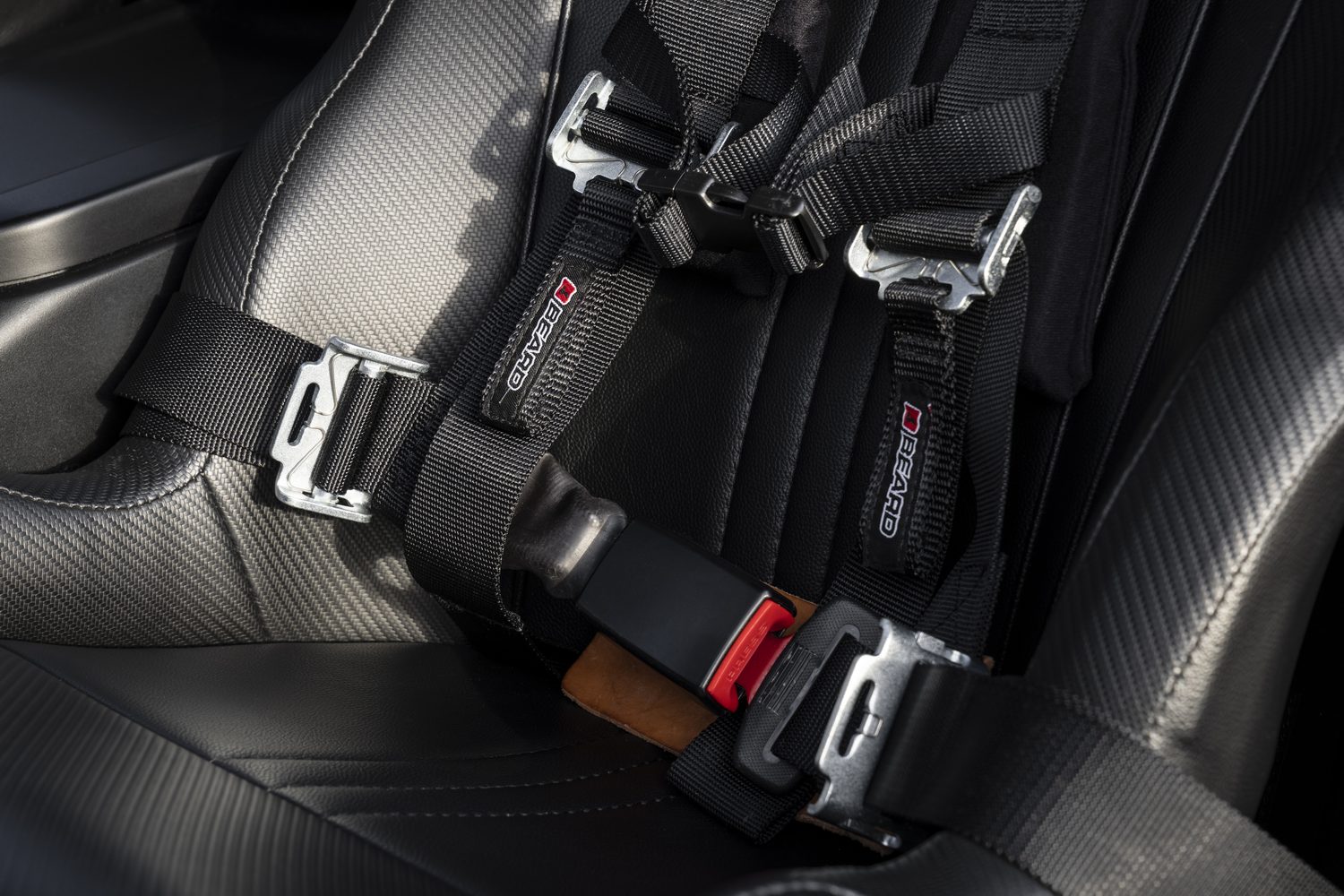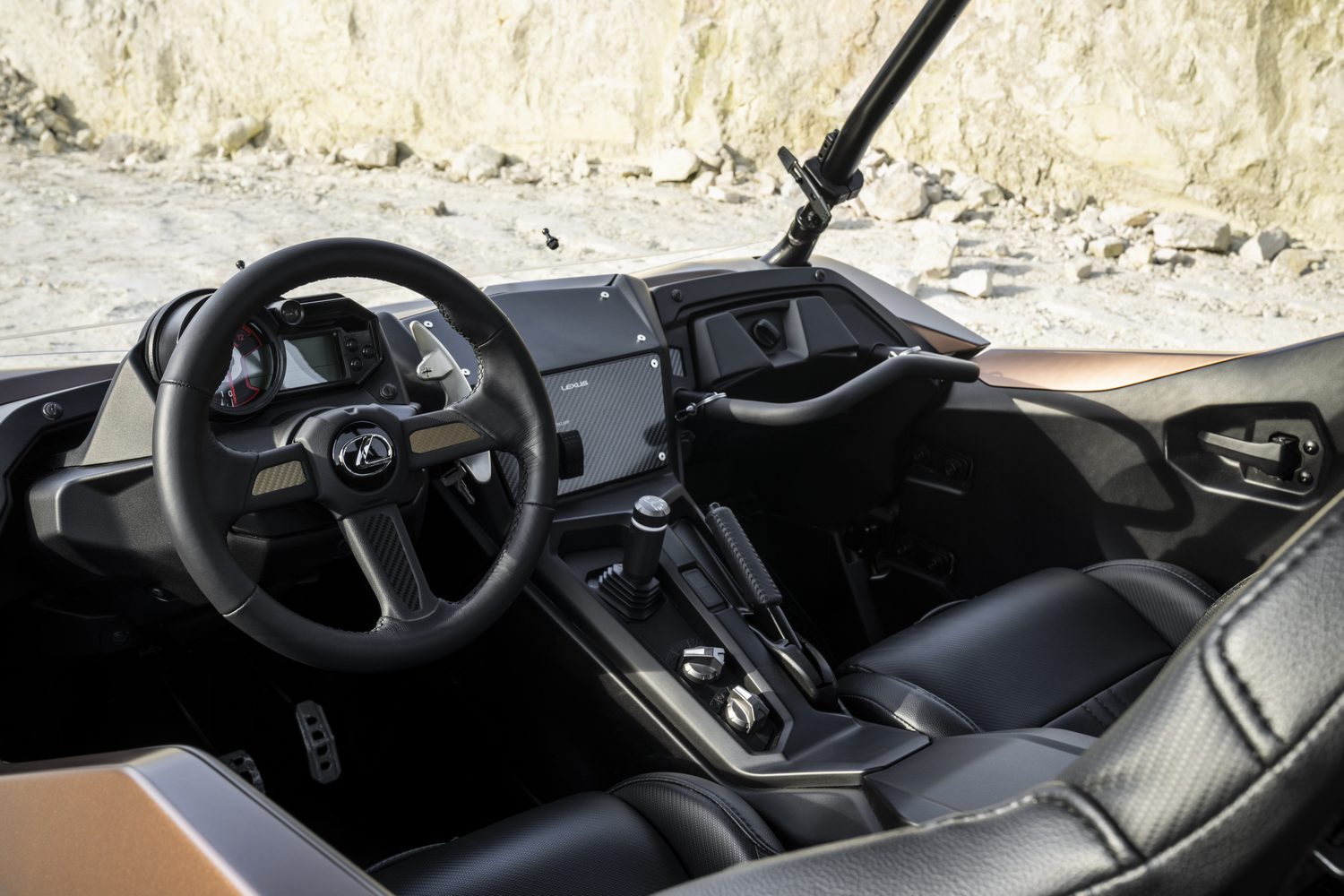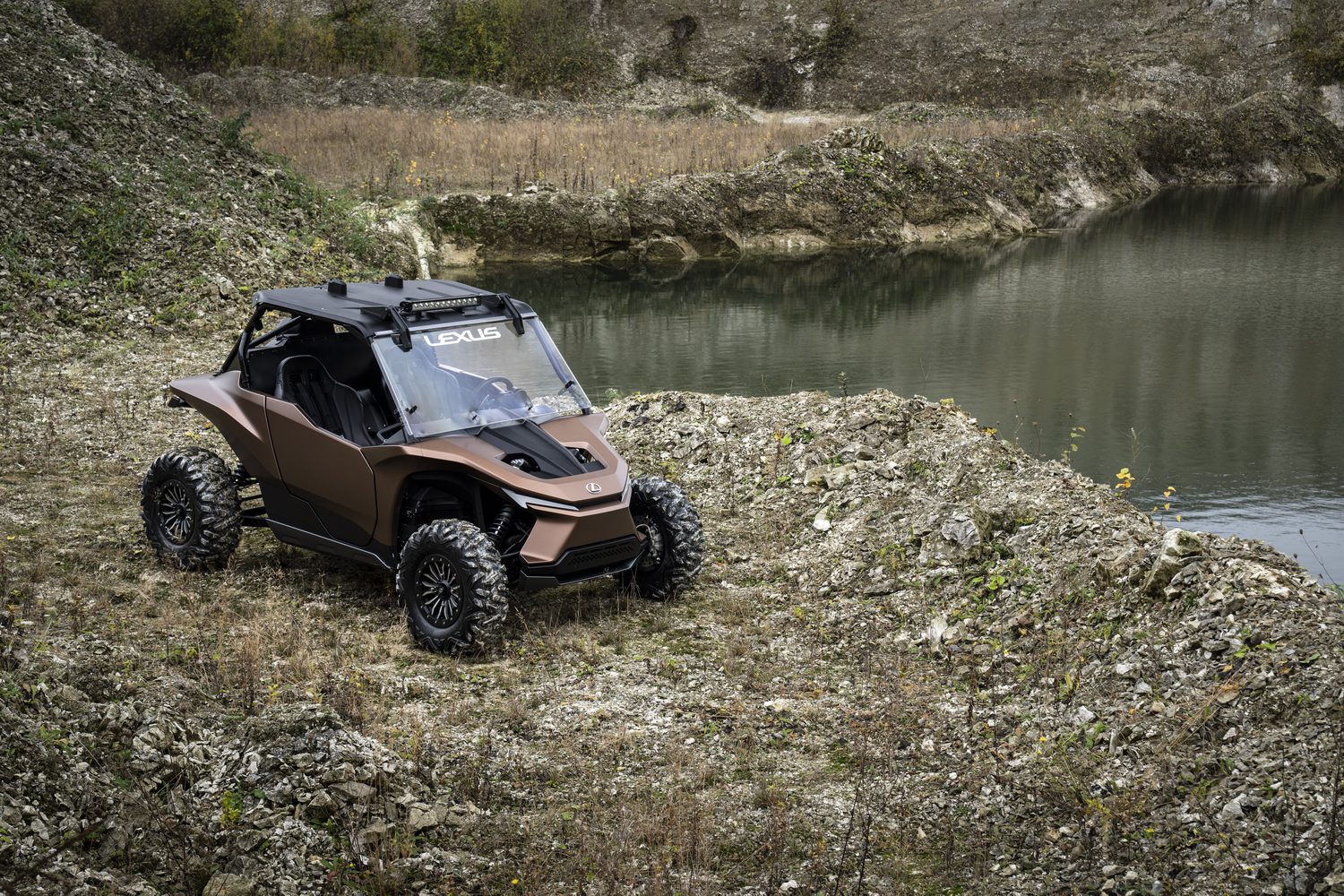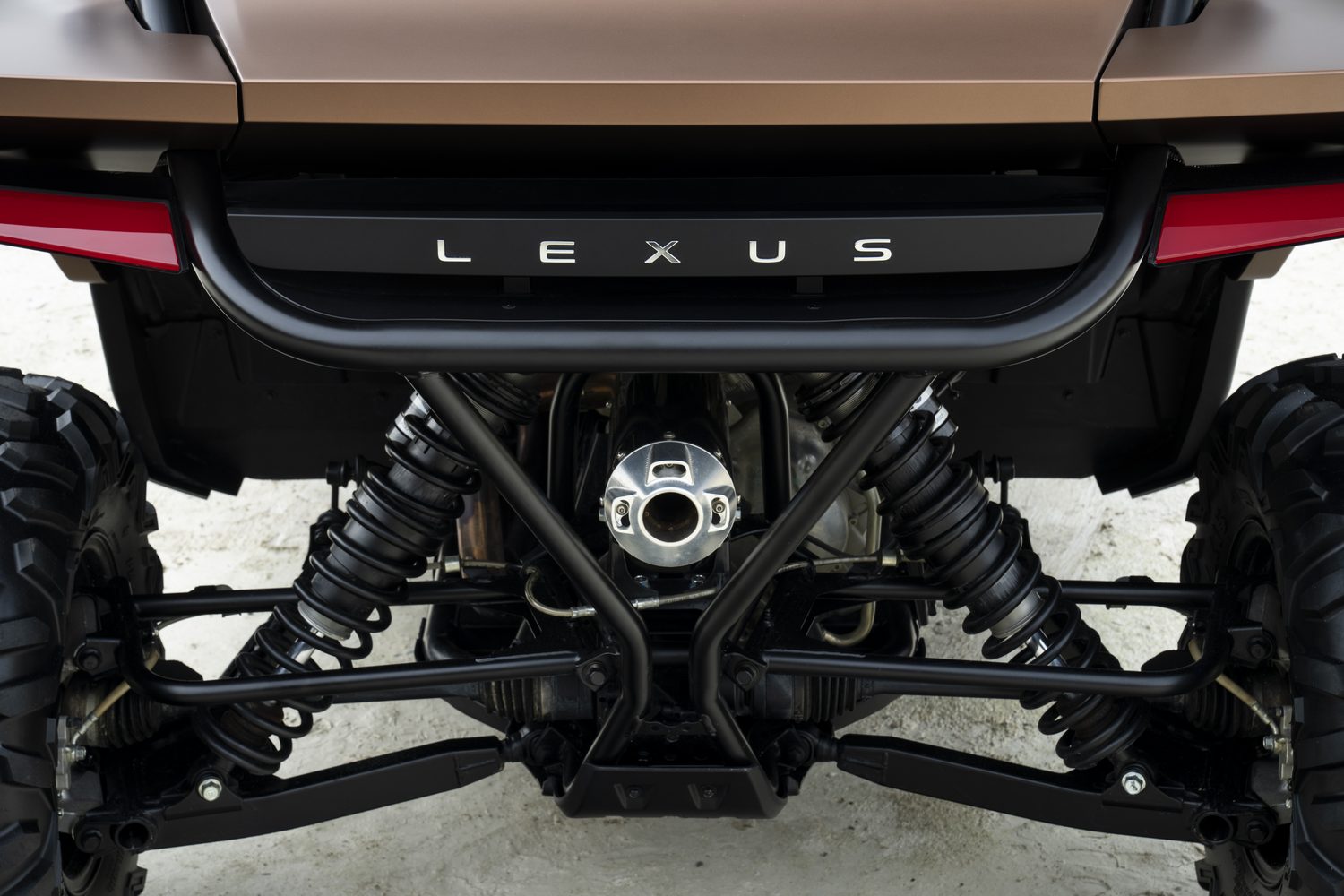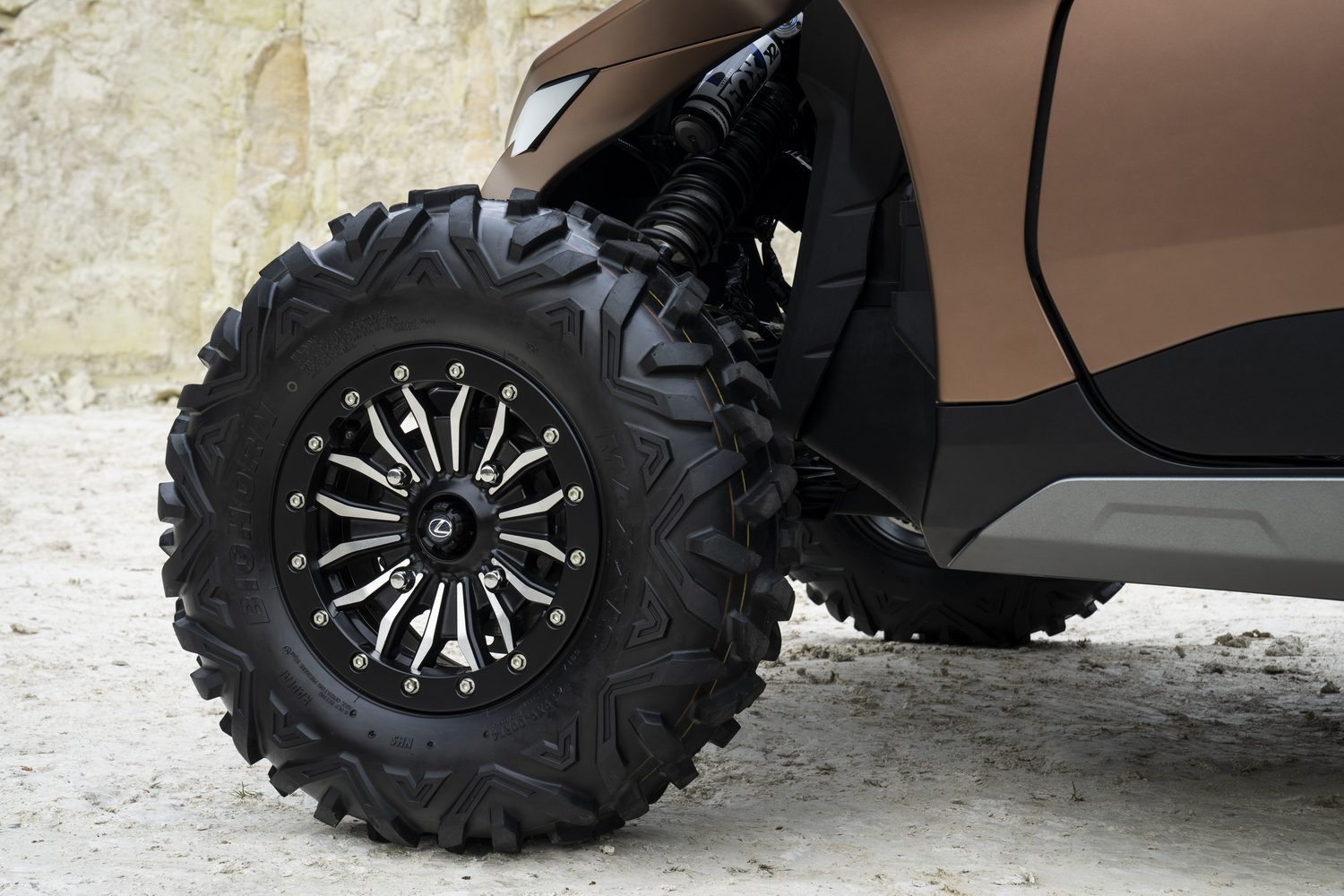Lexus has unveiled the Recreational Off-highway Vehicle (ROV) concept, a buggy powered by hydrogen and designed for serious off-road adventures.
Luxury off-roading
The ROV concept features beefy design elements such as exposed suspension components, a cage to protect passengers in the event of a rollover and chunky off-road tyres. The front wings have been designed to protect the body and occupants from flying bits of rock and mud. Although the exterior does include a few styling cues inspired by other Lexus models - the lights and rear badge primarily - it doesn't really owe much to anything else in the company's portfolio.
The same is true of the spartan interior, though it does feature synthetic leather seats, a leather steering wheel and a sculpted gear shifter. The transmission is automatic with a dial in the centre console that allows the car to be driven in two-wheel or all-wheel mode or with the differential locked for improved off-road capability.
Hydrogen power
Interestingly, powering the ROV is a 1.0-litre internal combustion engine. While that may not sound exciting on its own, it uses hydrogen for fuel rather than petrol. Like the hydrogen-powered Toyota Corolla Sport currently racing in Japan's Super Taikyu endurance series and the recently unveiled Yaris GR concept, instead of using a fuel cell to convert hydrogen into electricity, the ROV uses hydrogen for combustion in much the same way as a conventional petrol engine. While the fuel tank and the injection system have been modified to accommodate the high-pressure gas, the basic principle isn't any different from a normal internal combustion unit, except that the main emission is water.
The main benefits of hydrogen combustion engines like this are that carbon emissions are extremely low compared to fossil-fuels while similar performance levels, sounds and responsiveness can be achieved without the need to develop entirely new types of powertrain. The technology, however, has yet to be fully commercialised.
According to Spiros Fotinos, the head of Lexus Europe:
"The Lexus ROV is our response to the growing passion for the outdoors and the adventurous spirit of luxury consumers. As a concept it fuses our desire to also develop lifestyle-oriented products with our ongoing research into new technologies that contribute to carbon neutrality. As well as delivering a concept that is thrilling to drive, it has near zero emissions thanks to its hydrogen-powered engine."
Will it make production?
Lexus currently has no plans to build the ROV or anything like it, though it's not totally beyond the realms of possibility. A few years back, the company did, in fact, preview and subsequently build a yacht, the Lexus LY 650, which made it into small-scale production. Compared to a 65-foot luxury boat, building the little ROV doesn't look quite so fanciful a prospect.


